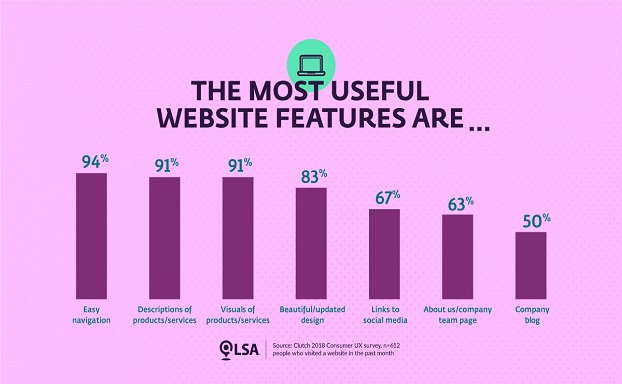There’s an intensifying debate about the value and role of websites. Some marketers argue that websites (especially SMB sites) have become irrelevant because of Google My Business and other major consumer sites such as Facebook and Amazon.
Others say, however, that websites serve as “data hubs,” which provide accurate information to Google, Bing and other consumer destinations. And if you’re a retailer, websites play an obvious role in driving consumer purchases.
A recent survey from Clutch determined the top, most useful website features. In deciding what could be considered “useful”, the company “combined responses for respondents who selected either “extremely” or “somewhat” useful. If survey respondents rated a feature as “slightly” or “not at all” useful, we did not consider their responses in our tally.”
According to the results, the most useful website features included easy navigation (94%), descriptions of products and services (91%) and visuals of products and services (91%). Followed by beautiful/updated design (83%), links to social media (67%), about us/company team page (63%) and company blog (50%).
Marketers need to concentrate on improving the website components that matter most to consumers. Websites that possess simple navigation allow users to find what pages they’re looking for quickly and easily. Those with relevant product descriptions and appealing visuals help enhance the overall user experience.
This data comes from Clutch’s 2018 Consumer UX survey, n=612 people who visited a website in the past month. To access the graphic above, click here.



